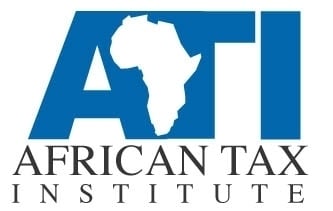 |
|---|
|
Dr Olav Lundstøl is a special envoy on climate and forest in the Congo Basin countries, at the Royal Norwegian Embassy in Kinshasa, DRC. He coordinates Norwegian development aid support through different partner organizations and instruments across Central Africa, with the aim to reduce deforestation and degradation of natural resources. Olav graduated with a PhD in Tax Policy from the African Tax Institute in 2021. In his thesis, Essays on the economics of mining revenue in Tanzania and Zambia, Dr Lundstøl investigated mining revenue sharing between the state and mining companies in Tanzania and Zambia between 2000 and 2013. Following a mixed-method approach consisting of qualitative and quantitative methods, the study examined what constituted the key elements of effective mining fiscal and tax systems, how effective mining revenue sharing between the state and companies can be measured, and the extent to which Tanzania and Zambia achieved an effective government cut in mining. The research confirmed that in both countries there were weaknesses in the design and enforcement of the mining tax regimes that lowered the government’s cut. It was estimated that from 2008 to 2013 both countries could have doubled their average annual mineral revenues to the state while securing competitive effective tax rates and rates of return for the mining companies. The thesis identified policy and administrative lessons for resource-rich countries. |
 |
|
Dr Sansia Blackmore submitted her PhD thesis in March 2020 with Prof Sally Wallace (Extraordinary Professor) as supervisor and Prof Reneé van Eyden and Prof Riël Franzsen as co-supervisor. She was a SARChI student and graduated in September 2021. In her study titled Reversing Poverty: The Role of Institutions, State Capacity and Human Empowerment, she explores the fundamental causes of poverty persistence, which remains a central challenge of the modern world. In theory, rising political participation operationalises checks on state predation and cultivates development-enabling state capacity. This did not materialise in post-colonial sub-Saharan Africa. The theoretical foundation of this premise is further brought into question by the development achievements of strong, capable non-democracies. The study uses a dynamic, panel-data model to explore a probabilistic development hypothesis that fuses institutionalism with modernisation and human empowerment. The model relies on regime-independent state capacity to trigger the transformational impetus of rising existential security, autonomy and individual agency. Ensuing shifts in societal value orientations towards emancipative mindsets then drive the progression towards prosperity. The results show that the poor-country deficit in human empowerment, represented by mind-broadening education and emancipative values, dwarfs the shortfalls in all other drivers of prosperity, including exports and investment. |
 |
|
Dr Felix Oppong submitted his PhD thesis in February 2020 with Prof Augustin Fosu (Extraordinary Professor) as supervisor and Prof Riël Franzsen as co-supervisor. He graduated in September 2020. In his thesis, Fiscal decentralization and autonomy of subnational entities in Ghana, Dr Oppong investigated the effectiveness of fiscal decentralization in supporting subnational autonomy and the impact of subnational fragmentation on subnational revenues. The study used mixed research methods consisting of quantitative and qualitative approaches as well as innovative data coding techniques. The research confirmed the successful implementation of political and administrative decentralization in Ghana. Fiscal decentralization had mixed results given that revenue assignment was limited relative to expenditure assignments of subnational entities due to financial capacity constraints. Intergovernmental transfers had an aggregate negative impact on own-source revenues, but no impact on property taxes. Fragmentation of assemblies had an overall negative impact on own-source revenue and property taxes. Fragmentation of metropolitan assemblies had an overall positive effect on property taxes, relative to non-metropolitans while municipal fragmentation had a net positive effect but an overall negative effect on property taxes. |
 |
|
Dr Abdallah Ali-Nakyea submitted his PhD thesis in September 2019 with Prof Riël Franzsen as supervisor and Prof Augustin Fosu (Extraordinary Professor) as co-supervisor. He graduated in April 2020. In his thesis, An examination of oil and gas taxation and revenue management in Ghana, Dr Ali-Nakyea investigated whether Ghana requires reappraisal and amendment of its laws on taxation of the oil and gas sector and the management of the expected revenues from these sources, as well as institutional reforms that improve governance. Following a mixed-method research approach consisting of quantitative as well as qualitative methods, the tax and revenue management policies and regulations of a number of oil-rich countries were briefly reviewed and compared to Ghana’s oil and gas taxation and revenue management legislation. His research confirmed the noncompliance of the Government of Ghana with the provisions in the Petroleum Revenue Management Act, which potentially makes the occurrence of the “oil curse” in Ghana more likely. The thesis recommends that the Government of Ghana puts in place adequate measures, underpinned by appropriate legislation, for the retention and investment of its share of oil revenues, and also deals with oil revenue volatility. |
 |
|
Dr Misaveni Ngobeni submitted his PhD thesis in October 2019 with Prof Martin Breitenbach as supervisor and Dr Goodness Aye and Prof Riël Franzsen as co-supervisors. He graduated in April 2020 as the sixth SARChI Chair doctoral student. In his thesis, Assessing technical efficiency of provincial health and education sectors in South Africa, Dr Ngobeni used 12 Data Envelopment Analysis models with six variables to investigate the technical efficiency of health and education sectors in 2017/18. The average technical efficiency scores respectively ranged from 35.7 to 87.2 and 45.9 to 97.9 per cent between the health and education models. The Gauteng province was technically efficient in six healthcare models and three provinces were purely technically inefficient. They had to reduce 6 940 non-core health workers and spend R61 million less on healthcare while investing in core health infrastructure and personnel. KwaZulu-Natal was technically efficient in five of the six education models and six provinces were inefficient. They had to reduce education expenditure inefficiency by R24.7 billion and use potential savings to train existing and appoint additional 9 684 teachers.
|
 |
|
Dr Roshelle Ramfol submitted her PhD thesis in April 2019 with Prof Riël Franzsen as supervisor and graduated in April 2020. She was the fifth SARChI Chair doctoral student to graduate. In her thesis, Taxation of the extractive industry in the context of contemporary international fiscal regimes: lessons for South Africa, Dr Ramfol reviews the South African mineral and petroleum licencing and tax regime. Drawing from the experiences of Botswana, Norway and Alberta, Canada, regarding the awarding of extractive rights, generating fiscal returns and resource revenue management, the study reveals that an internationally competitive, stable, transparent and well-administered tax regime can produce a “fair” return. The South African tax regime generally meets these requirements. The competitiveness of the extractive sector can be enhanced by offering an exploration incentive. Furthermore, the mining charter requirements impose associated costs that impact the indirect sharing of resource rent. It is for this reason that these provisions can be regard as fiscally equivalent to taxation and should therefore be included when evaluating the investor-state fiscal take. Due to resource depletion and new technologies affecting resource demand, a resource-intensive economy should review its fiscal regime regularly adopting a value-based approach to policy formulation. A National Resource Fund with the dual objective of a stabilization and a savings fund must be established, thus creating intergenerational equity from a depleting resource. |
 |
Copyright © University of Pretoria 2024. All rights reserved.
Get Social With Us
Download the UP Mobile App